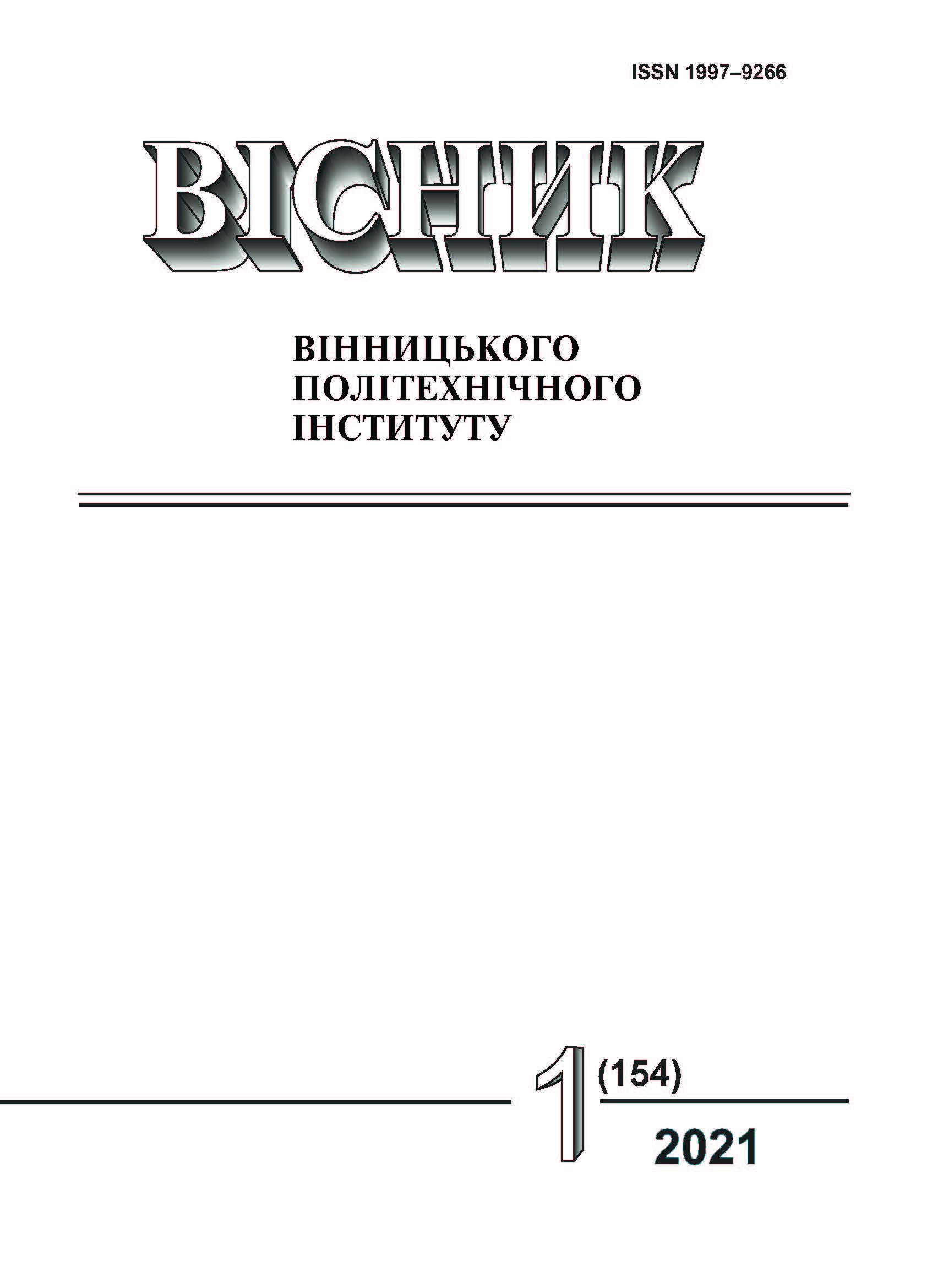Adaptation of the Methodology of Clear Estimation of the Quality of Knowledge in the Field of Information Technologies Obtained Online on Fuzzy Models of Learning Processes
DOI:
https://doi.org/10.31649/1997-9266-2021-154-1-57-69Keywords:
quality of students' knowledge, fuzzy model of quality estimation of studying a particular discipline, probabilistic nature of defuzzified linguistic variables of a fuzzy model, adaptation of methods of clear quality estimation based on a fuzzy mode, substantiation of necessity and conditions of adaptationAbstract
To estimate the quality of the learning process for students of higher technical educational institutions in a particular discipline, obtained online, it is proposed to use an adapted form of the well-known ideology of clear estimation of the quality of integration of education with manufacture on fuzzy mathematical models. The need of adaptation of this ideology is conditioned, firstly, that linguistic variables, that will characterize the different stages of educational process, get new maintenance, as a process of receipt of working profession by students is not adequate to the process of mastering a certain educational discipline by students in the online-mode, secondly, that in connection with a necessity to take into account the terms of mastering of certain educational discipline in the online-mode the amount of these linguistic variables grows substantially, and thirdly, that in connection with necessity to determinate before the final stage, in kind of an examination these additional influence, by means of which the normalization will be performed for those linguistic variable that differ from "normal" ones, the process of analysis orientation "from the end to the beginning", specific for the prototype-ideology, changes on the opposite process "from the beginning to the end". The methodology that will realize our variant of ideology of clear estimation on unclear models differs by t taking into account the differences given above in ideology, firstly, that takes off the problem of creation of sufficient power of great number of defuzzified values of linguistic variables that characterize the process of studying a certain educational disciplines in little-completed groups, secondly, uses the great number of examination estimations not as starting one for the beginning of estimation process, as it takes place in the prototype-ideology, but as criterion, by means of that the process quality is estimated, and thirdly, offers variants of synthesis of a mathematical model for distribution laws of defuzzified linguistic variables in case if a hypothesis of "normality" for them is not executed.
References
О. Б. Мокін, О. М. Мензул, В. М. Мізерний, і Б. І. Мокін, «Математична модель прогнозу рівня кваліфікації, яку отримає кожний студент в результаті освоєння робітничої професії (Частина 1: формалізація, структуризація і параметризація задачі),» Вісник Вінницького політехнічного інституту, № 5, с. 125-129, 2012.
О. Б. Мокін, О. М. Мензул, В. М. Мізерний, і Б. І. Мокін, «Математична модель прогнозу рівня кваліфікації, яку отримає кожний студент в результаті освоєння робітничої професії (Частина 2: побудова нечіткої бази знань та її алгоритмізація),» Вісник Вінницького політехнічного інституту, № 6, с. 152-156, 2012.
О. Б. Мокін, О. М. Косарук, О. В. Слободянюк, В. М. Мізерний, і Б. І. Мокін, «Методика оцінювання і підвищення якості практичної підготовки студентів за технологією освоєння робітничої професії,» Вісник Вінницького політехнічного інституту, № 1, с. 177-186, 2015.
Б. І. Мокін, О. Б. Мокін, і О. М. Косарук, Ідеологія дуальності в вищій технічній освіті на основі інтеграції навчання з виробництвом, моногр. Вінниця, Україна: ВНТУ, 2019, 224 с.
Boris I. Mokin, Oleksandr B. Mokin, Olena M. Kosaruk, Mashat Kalimoldayev, and Waldemar Wójcik, “Assessment of the knowledge quality level based on fuzzy models of its acquisition processes,” Przegląd Elektrotechniczny, no. 09/2020, pp. 114-119, https://doi.org/10.15199/48.2020.09.24.
С. Д. Штовба, Проектирование нечетких систем средствами MATLAB. Москва, РФ: Гарячая линия-Телеком, 2007, 288 с.
Ю. И. Митюшкин, Б. И. Мокин, и А. П. Ротштейн, Soft Computing: идентификация закономерностей нечеткими базами знаний. Винница, Украина: УНІВЕРСУМ-Вінниця, 2002, 145 с.
В. Н. Тутубалин, Теория вероятностей. Москва: Издательство Московского университета, 1972, 230 с.
Е. И. Гурский, Сборник задач по теории вероятностей и математической статистике. Минск: Вышэйшая школа, 1975, 272 с.
Downloads
-
PDF (Українська)
Downloads: 192
Published
How to Cite
Issue
Section
License

This work is licensed under a Creative Commons Attribution 4.0 International License.
Authors who publish with this journal agree to the following terms:
- Authors retain copyright and grant the journal right of first publication.
- Authors are able to enter into separate, additional contractual arrangements for the non-exclusive distribution of the journal's published version of the work (e.g., post it to an institutional repository or publish it in a book), with an acknowledgment of its initial publication in this journal.
- Authors are permitted and encouraged to post their work online (e.g., in institutional repositories or on their website) prior to and during the submission process, as it can lead to productive exchanges, as well as earlier and greater citation of published work (See The Effect of Open Access).





